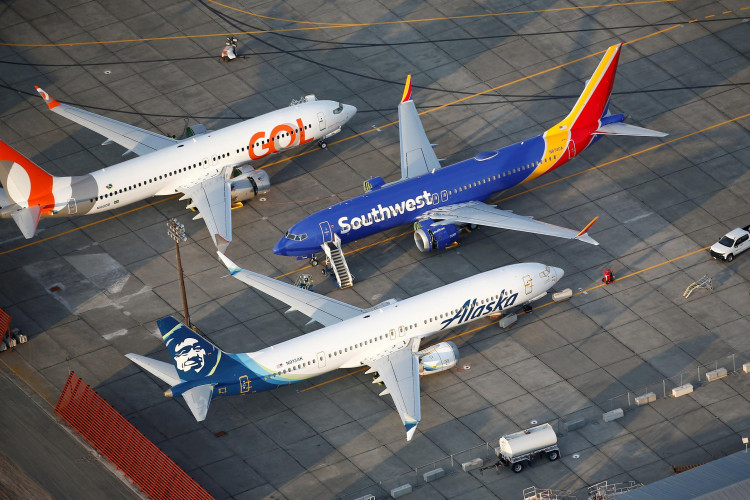Alaska Airlines is facing a significant financial setback due to the grounding of the Boeing 737 Max 9 aircraft, with an estimated loss of about $150 million. This substantial loss is a blow to the airline, which reported an adjusted income of $38 million in the last quarter of the year and $583 million for the full year. Despite the fourth-quarter income exceeding expectations, the grounding of the 737 Max 9 has cast a shadow over the airline's financial outlook.
The grounding was a result of a concerning incident on January 5, when a door plug blew off during an Alaska Airlines flight, leaving a large hole in the side of the plane. Thankfully, no passengers were killed, but the Federal Aviation Administration (FAA) swiftly ordered a grounding of all 737 Max 9 jets. Alaska Airlines, which possesses the second-largest fleet of these jets, only behind United Airlines, has been significantly impacted.
The FAA has outlined inspection procedures to return these planes to flight, and Alaska Air has announced that the first of its grounded jets will resume service shortly, with more planes being added every day as they are cleared as airworthy. Despite this, the financial impact of the grounding is primarily due to lost revenue, as the airline had to cancel approximately 3,000 flights this month, reducing its overall capacity by about 7% for the quarter.
CFO Shane Tackett of Alaska Airlines has expressed that the airline fully expects to be compensated for the profit impact of the grounding. However, there are currently no details available regarding this compensation. Alaska Airlines CEO Ben Minicucci has stated his belief that passengers will return to the 737 Max 9 once it starts flying again, despite initial concerns.
Moreover, the airline's management has expressed frustration and anger with Boeing, the manufacturer of the aircraft. Minicucci, in an interview with NBC, articulated his disappointment and anger regarding the incident. He emphasized that while the airline has long been satisfied with Boeing's 737 aircraft, the recent incident has called for a reassessment of their relationship, stressing the need for Boeing to ensure the quality of their airplanes.
Southwest Airlines, another major carrier, has also felt the ripple effects of Boeing's challenges. Southwest, which exclusively flies Boeing 737s, stated that it now expects fewer 737 Max deliveries from Boeing this year. The delay in the FAA certification of the 737 Max 7 model has led to uncertainty regarding the delivery timeline.
As Alaska Airlines navigates these challenges, the impact of the 737 Max 9 grounding is a stark reminder of the interconnectedness of the aviation industry and the far-reaching consequences of such incidents. While Alaska Airlines remains optimistic about its long-term plans with Boeing, the current situation underscores the complexities and dependencies in commercial aviation. As the industry continues to recover from the pandemic, such setbacks serve as critical lessons in resilience and adaptability.





